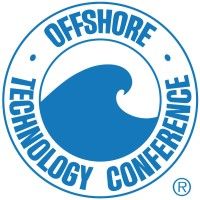Metocean Measurements to Models: Transforming Ocean Data into Operational Decision Tools
Wednesday, 6 May
Room 604
Technical Session
Reliable forecasting of ocean conditions is essential to safe, efficient offshore operations—and new technologies are redefining what’s possible. This session showcases advances in metocean observation, modeling, and prediction, spanning direct measurement–model comparisons from deepwater deployments to machine learning–based forecasts of Loop Current behavior. Papers explore probabilistic diffusion modeling, data assimilation using Argo and autonomous surveys, and emerging operational systems for the Gulf of Mexico and tropical Atlantic. Together, they highlight how AI, advanced empirical methods, and integrated data frameworks are transforming model skill, risk prediction, and operational planning for offshore energy systems in a changing ocean
Chairperson(s)
Sponsoring Society:
- American Society of Civil Engineers (ASCE)
-
0930-0948 37023Comparisons Between Measurements And Numerical Simulations During The Big Foot Deployment Period
-
0950-1008 37164Results From An Autonomous Current Survey In The Gulf Of America
-
1010-1028 36955Diffocean: Probabilistic Diffusion Models For Forecasting Extreme Ocean Currents In The Guyana Region
-
1030-1048 36898Evaluation Of Ocean Model Performance In The Gulf Of Mexico Using Argo Data And Gravest Empirical Modes
-
1050-1108 37024An Operational System For The Western Tropical Atlantic Ocean
-
1110-1128 37109Ml-based Applications For Mid- To Long-term Forecasts Of The Loop Current System
-
1130-1148 36962Definition Of Model Skill Assessment Framework For Oil And Gas Offshore Operations
-
Alternate 37175The Role Of Loop Currents And Warm Mesoscale Oceanic Eddies In Shaping Hurricane Risks To Offshore Oil & Gas Operations In A Future Climate


